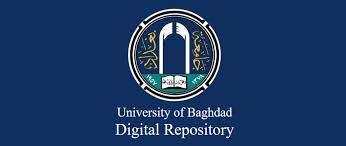المواطن ومركزه في النظام الإسلاميرؤية ومحاولة تأصيلية
DOI:
https://doi.org/10.51930/jcois.21.2024.77.0075الكلمات المفتاحية:
المواطن ، - النظام الإسلامي، - تأصيلالملخص
من الأمور المؤكدة لدينا -نحن المسلمين- أن الدين الإسلامي هو الدين الأكمل؛ فقد نزل على نبي الرحمة محمد (ﷺ) وهو يضم بأصوله وتشريعاته كل ما له علاقة بجزئيات الحياة وتفاصيلها، وكان الاهتمام بالإنسان مدعاة اهتمام الإسلام الحنيف وموضع عنايته؛ فقد سخر الباري (عز وجل) كل شيء له تلبية لحاجاته المادية والمعنوية، فكان أن جعل من الطبيعة (الأرض) وما فيها من تضاريس موطناً له يرتبط به روحاً وجسداً، بيد أنه لم يتركه وحيداً يعيش بمفرده، وإنما خلق عنده القدرة على التواصل مع الآخرين والاندماج معهم وحب التواصل الاجتماعي تحت عنوانات متعددة تبدأ من العائلة، والعشيرة، والقبيلة، والقرية، والمدينة لتنتهي بالنظام الاجتماعي والقانوني الذي يُعرف بالدولة. إن الاهتمام بالمواطن أو الفرد يعد ركناً من أركان النظام السياسي أو ما يُعرف بالدولة؛ الذي يعد ركيزة أساسية في معالجة أي بُعد من أبعاد النظام السياسي لأي دولة عبر التاريخ. ولمعرفة دوره جاءت فكرة البحث لتسلط الضوء على مكانته وحقوقه وواجباته في المنظور الإسلامي.
المراجع
قائمة المصادر والمراجع:
• القرآن الكريم.
• تاريخ الأمة العربية/ دراسات في عصر الخلفاء الراشدين: د. عبد الفتاح شحاته. القاهرة: 1970.
• دراسات في السيرة النبوية/ دكتور حسين مؤنس؛ القاهرة: الزهراء للإعلام العربي. ط2.
• الرسول الأعظم (ﷺ)/ السيد محمد باقر الحكيم، إعداد وترتيب: الشيخ حسين المياحي؛ النجف: مؤسسة شهيد المحراب للتبليغ الإسلامي، الطبعة الأولى: 1424هـ.
• السيرة النبوية/ ابن هشام تحقيق: مصطفى السقا وإبراهيم الأبياري وعبد الحفيظ الشلبي القاهرة: شركة مكتبة ومطبعة مصطفى البابي الحلبي وأولاده بمصر، ١٣٧٥هــ- ١٩٥٥م، ط2.
• شذا العرف في فن الصرف/ الشيخ الحملاوي؛ تحقيق: نصر الله عبد الرحمن نصر الله، الرياض: مكتبة الرشد.
• القاموس المحيط/ مجد الدين محمد بن يعقوب الفيروز آبادي، القاهرة: مؤسسة الحلبي وشركاؤه.
• لسان العرب/ أبو الفضل جمال الدين بن محمد بن مكرم ابن منظور، بيروت: دار صادر، 1956م.
• مسلمون ومسيحيون في الحضارة العربية الإسلامية/ احمد صدقي الدجاني، القاهرة: مركز يافا للدراسات والبحوث، 1999م.
• معجم الصحاح/ إسماعيل بن حماد الجوهري، تحقيق: أحمد عبد الغفور عطار، بيروت: دار العلم للملايين؛ الطبعة الرابعة، 1407هــ- 1987م.
• مقومات الدولة الإسلامية في ضوء وثيقة (دستور) المدينة: محمد صالح أحمد خليف؛ (بحث مستل من أطروحة دكتوراه)؛ مجلة كلية الدراسات الإسلامية، العدد الخامس والثلاثون.
• المواطنة/ زياد علاونة، وزارة الشؤون السياسية والبرلمانية.
• المواطنة بين السياسة الشرعية والتحديات المعاصرة/ علاء الدين جنكو، العراق: جامعة التنمية البشرية في السليمانية.
• المواطنة تاريخياً ودستورياً وفقهياً/ د.وليد سليمان وآخرون؛ المركز القطبي للدراسات الاجتماعية: 1998م.
• المواطنة في القانون الدولي والشريعة الإسلامية/ د.إيناس محمد البهجي، المركز القومي للإصدارات القانونية، الطبعة الأولى.
• المواطنة لغة واصطلاحا وارثاً/ عريب الرنتاوي، مركز القدس للدراسات السياسية، مقالة بتاريخ 2/4/ 2009م.
• الوطن والمواطن الأصول العقدية والمقاصد/ د. يوسف القرضاوي، دار الشروق.
• المنهاج شرح صحيح مسلم بن الحجاج/ ابو زكريا محيي الدين يحيى بن شرف النووي (ت676هــ)، بيروت: دار إحياء التراث العربي، ط2: 1392هـ.
• نظام الحكم والإدارة في الإسلام/ محمد مهدي شمس الدين؛ بيروت: المؤسسة الدولية للدراسات والنشر، الطبعة الثانية: 199
List of sources and references:
• al-Qurʼān al-Karīm.
• Tārīkh al-ummah al-ʻArabīyah / Dirāsāt fī ʻaṣr al-khulafāʼ al-Rāshidīn : D. ʻAbd al-Fattāḥ Shiḥātah. al-Qāhirah : 1970.
• Dirāsāt fī al-sīrah al-Nabawīyah / Duktūr Ḥusayn Muʼnis ; al-Qāhirah : al-Zahrāʼ lil-Iʻlām al-ʻArabī. ṭ2.
• al-Rasūl al-Aʻẓam (Ṣ) / al-Sayyid Muḥammad Bāqir al-Ḥakīm, iʻdād wa-tartīb : al-Shaykh Ḥusayn al-Mayyāḥī ; al-Najaf : Muʼassasat Shahīd al-Miḥrāb lil-Tablīgh al-Islāmī, al-Ṭabʻah al-ūlá : 1424h.
• al-sīrah al-Nabawīyah / Ibn Hishām, taḥqīq : Muṣṭafá al-Saqqā wa-Ibrāhīm al-Abyārī wa-ʻAbd al-Ḥafīẓ al-Shalabī al-Qāhirah : Sharikat Maktabat wa-Maṭbaʻat Muṣṭafá al-Bābī al-Ḥalabī wa-Awlāduh bi-Miṣr 1375 H _ 1955m, ṭ2.
• Shadhā al-ʻurf fī Fann al-ṣarf / al-Shaykh al-Ḥamalāwī ; taḥqīq : Naṣr Allāh ʻAbd al-Raḥmān Naṣr Allāh, al-Riyāḍ : Maktabat al-Rushd.
• al-Qāmūs al-muḥīṭ / Majd al-Dīn Muḥammad ibn Yaʻqūb al-Fayrūz Ābādī, al-Qāhirah : Muʼassasat al-Ḥalabī wa-Sharikāʼuh.
• Lisān al-ʻArab / Abū al-Faḍl Jamāl al-Dīn ibn Muḥammad ibn Mukarram Ibn manẓūr, Bayrūt : Dār Ṣādir 1956m.
• Muslimūn wa-Masīḥīyūn fī al-Ḥaḍārah al-ʻArabīyah al-Islāmīyah / Aḥmad Ṣidqī al-Dajānī, al-Qāhirah : Markaz Yāfā lil-Dirāsāt wa-al-Buḥūth, 1999M.
• Muʻjam al-ṣiḥāḥ / Ismāʻīl ibn Ḥammād al-Jawharī, taḥqīq : Aḥmad ʻAbd al-Ghafūr ʻAṭṭār, byrwn : Dār al-ʻIlm lil-Malāyīn ; al-Ṭabʻah al-rābiʻah 1407h _ 1987m.
• Muqawwimāt al-dawlah al-Islāmīyah fī ḍawʼ wathīqah (Dustūr) al-Madīnah : Muḥammad Ṣāliḥ Aḥmad Khulayyif ; (baḥth mustall min uṭrūḥat duktūrāh) ; Majallat Kullīyat al-Dirāsāt al-Islāmīyah, al-ʻadad al-khāmis wa-al-thalāthūn.
• al-muwāṭanah / Ziyād ʻAlāwinah, Wizārat al-Shuʼūn al-siyāsīyah wa-al-barlamānīyah.
• al-muwāṭanah bayna al-siyāsah al-sharʻīyah wa-al-taḥaddiyāt al-muʻāṣirah / ʻAlāʼ al-Dīn Jankū, al-ʻIrāq : Jāmiʻat al-tanmiyah al-basharīyah fī al-Sulaymānīyah.
• al-muwāṭanah tārīkhīyan wdstwryā wfqhyā / D. Walīd Sulaymān wa-ākharūn ; al-Markaz alqṭby lil-Dirāsāt al-ijtimāʻīyah : 1998M.
• al-muwāṭanah fī al-qānūn al-dawlī wa-al-sharīʻah al-Islāmīyah / D. Īnās Muḥammad al-Bahjī, al-Markaz al-Qawmī lil-Iṣdārāt al-qānūnīyah, al-Ṭabʻah al-ūlá.
• al-muwāṭanah Lughat wāṣṭlāḥā wārthā / ʻUrayb al-Rintāwī, Markaz al-Quds lil-Dirāsāt al-siyāsīyah, maqālah bi-tārīkh 2/4 / 2009M.
• al-waṭan wa-al-muwāṭin al-uṣūl al-ʻaqadīyah wa-al-maqāṣid / D. Yūsuf al-Qaraḍāwī, Dār al-Shurūq.
• al-Minhāj sharḥ Ṣaḥīḥ Muslim ibn al-Ḥajjāj / Abū Zakarīyā Muḥyī al-Dīn Yaḥyá ibn Sharaf al-Nawawī (t 676h), Bayrūt : Dār Iḥyāʼ al-Turāth al-ʻArabī, ṭ2 : 1392h.
• Niẓām al-ḥukm wa-al-idārah fī al-Islām / Muḥammad Mahdī Shams al-Dīn ; Bayrūt : al-Muʼassasah al-Dawlīyah lil-Dirāsāt wa-al-Nashr, al-Ṭabʻah al-thāniyah : 1991m.
.jpg)
2.png)







